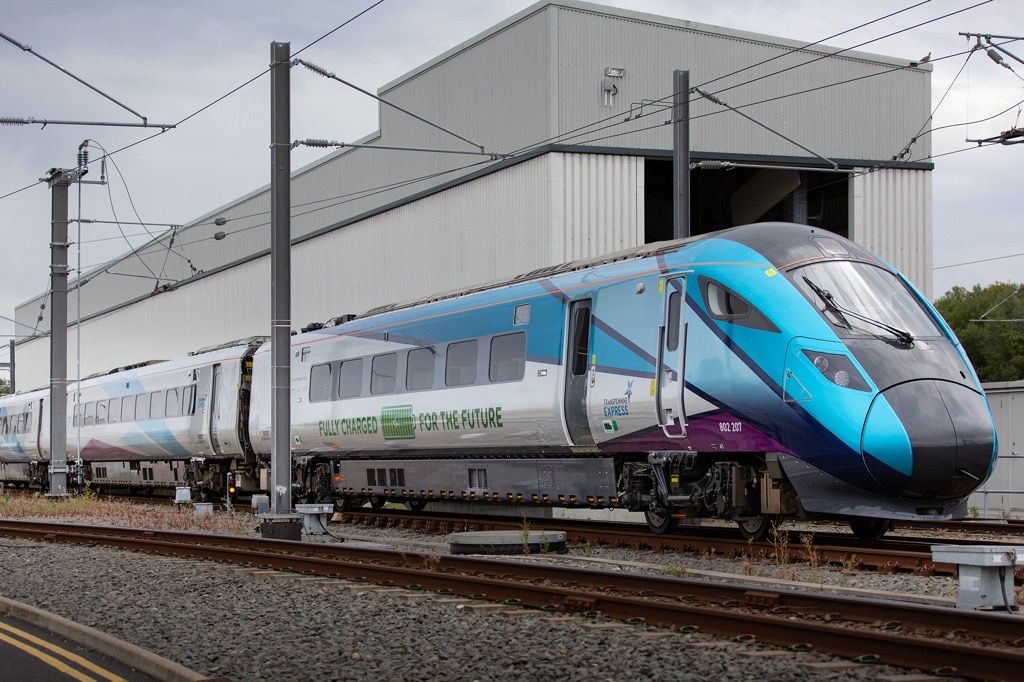
The UK’s first intercity battery train has begun testing on the British rail network after successful low speed running completed at Newton Aycliffe. This key milestone will see the battery technology trialled on routes between York to Manchester Airport and Leeds to Liverpool Lime Street over the next 8 weeks.
A variety of important tests will take place, including the battery’s ability to improve performance on hills, regenerative charging via braking, fuel and emission savings, and zero-emission battery mode in train stations.
Rail network testing is taking place after the battery train successfully completed low speed tests on the test track at Hitachi Rail’s Newton Aycliffe manufacturing facility. During these tests the train was propelled entirely by the battery, producing zero tailpipe emissions.
This is the first UK trial where a diesel engine is replaced with a battery on an intercity train. The battery has been successfully retrofitted onto one of TPE’s Nova 1 five-car trains (intercity Class 802).
The battery, which generates a peak power of more than 700kw, is predicted to reduce emissions and fuel costs by as much as 30% on a Hitachi intercity train. It will also demonstrate how battery technology can reduce costs on the railways by reducing the need for overhead wires in tunnel sections and over complex junctions.
The trial also aims to support the UK battery sector and green growth, with Hitachi Rail investing over GBP 15 million (EUR 17.8 million) to develop this pioneering technology with Turntide Technologies in Sunderland.
UK’s first intercity battery train is the result of a collaboration between TransPennine Express (TPE), Angel Trains and Hitachi Rail.
“This trial is a huge step towards the rail industry in the UK – and around the world reducing CO2 emissions and we are excited to be part of it. TPE is dedicated to making our journeys greener by reducing our carbon footprint, creating resilience to climate change and improving local air quality,” Paul Staples, Engineering, Safety and Sustainability Director at TransPennine Express, said.
Share on:



